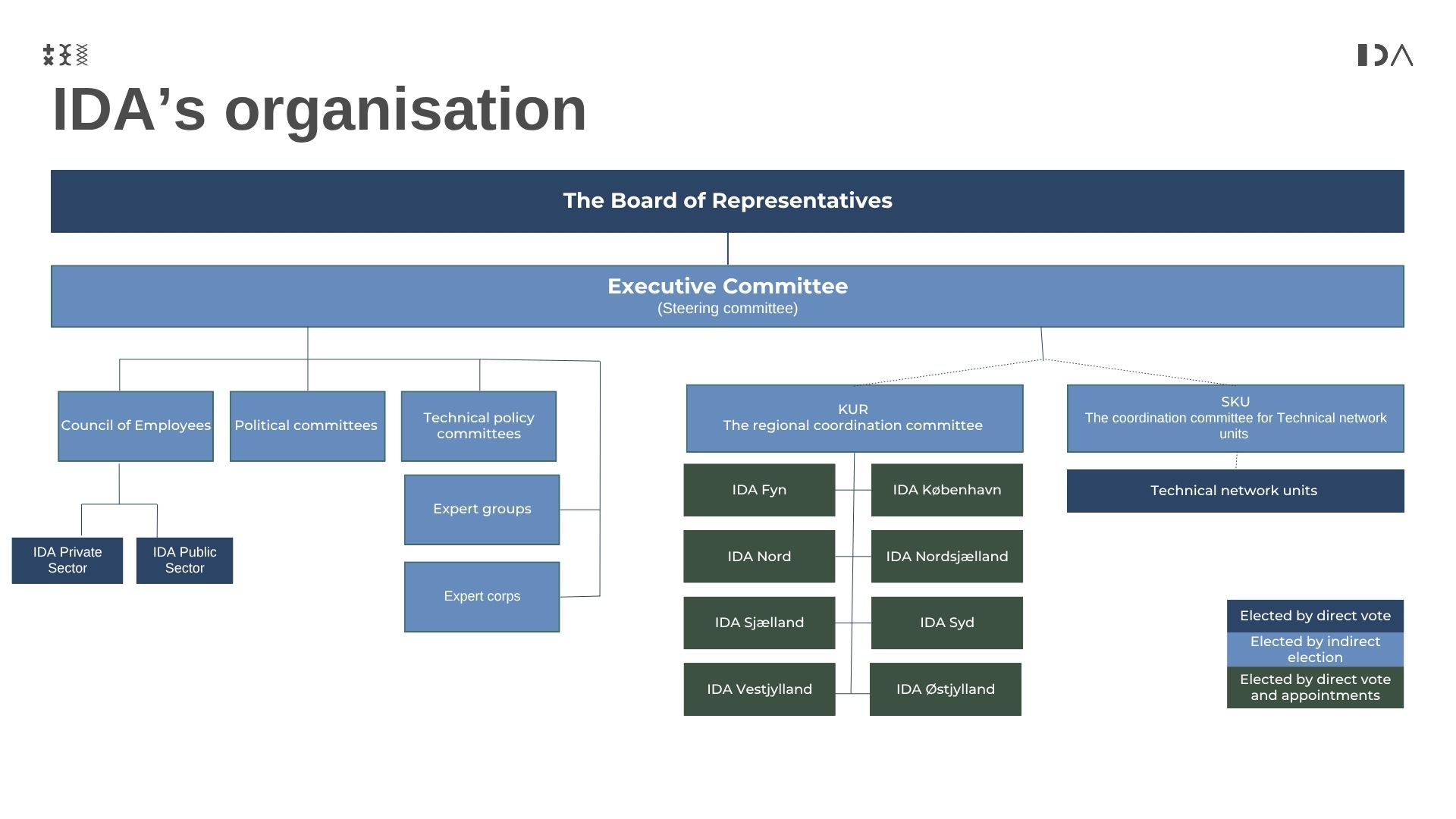About IDA
Get an overview of IDA’s political structure

IDA is a member democracy.
This means that you, as a member, can vote in the IDA election every three years and help set the direction for IDA's work. The next election is in 2028.
See the results of the 2025 election and previous elections here (in Danish)
The result of the IDA election impacts IDA’s work for and on behalf of its members. IDA’s democratically elected board of representatives sets the direction for IDA’s approach to work life balance, parental leave conditions, well-being and pay. It also has an impact on which special issues IDA prioritises in its work as an interest organisation, for example, it could be the green transition, cyber security or something else entirely.
IDA’s political structure
Every three years there are elections for the Board of Representatives in IDA. It is IDA members like yourself that you vote for, and all members who have finished their studies can run.
IDA’s election is much like a parliamentary election. Instead of parties, you vote for a list. When the votes are counted, IDA’s parliament – the board of representatives – is formed.
The board of representatives has 65 members who elect IDA's President and appoint IDA's executive committee – IDA’s prime minister and government, if you will.
The board of representatives, the executive committee and the president will collaborate in the following years on initiatives within three main areas: IDA as a trade union, interest organisation and community.
IDA as a trade union: Your rights on the labour market
A core task for IDA is to safeguard the rights of you and its other members in the labour market. As a trade union, IDA represents its members’ interests with regards to pay and employment conditions on issues such as pay transparency, parental leave, well-being and diversity.
Much of this work is organised through the council of employees, which is elected by the executive committee.
The council of employees has two sub-sections, IDA Public Sector and IDA Private Sector, which work specifically on issues relating to public employees and private employees and which have close cooperation with the union representatives organised in the workplaces through IDA.
Read more about the Council of Employees
IDA as an interest group
When IDA acts as an interest group, it is to influence external institutions such as the Danish Parliament, municipalities and employers and to contribute facts when political decisions have to be made.
IDA’s policy work is carried out in political committees, each with a focus on an issue, such as education and research or business and growth. The individual committees prepare the concrete proposals for IDA's policy, which must then be adopted by the executive committee. The executive committee also puts together expert groups, which can consist both of members from IDA's own professional communities and of external experts who are invited to join.
IDA's trade union politicians and employees work to make IDA's policy a reality by getting involved in networks and committees, through dialogue with politicians and through targeted press efforts.
Read more about IDA's key issues
IDA as a community for STEM professionals
For many members, IDA is a community where they can meet like-minded people at social and professional events. Every year, more than 3,000 events are organised in IDA, and they range from large conferences to cinema trips and hiking trips.
The events are organised through 8 regions and more than 70 professional communities, which focus on everything from management to historical technology. These, too, are part of IDA’s living democracy, as the members themselves choose their committees and chairpersons and in this way have an influence on the work in the communities.
So there is a lot at stake the next time you have the opportunity to vote in an IDA election. And unlike real parliamentary elections, you can vote online from your sofa.
Learn more: